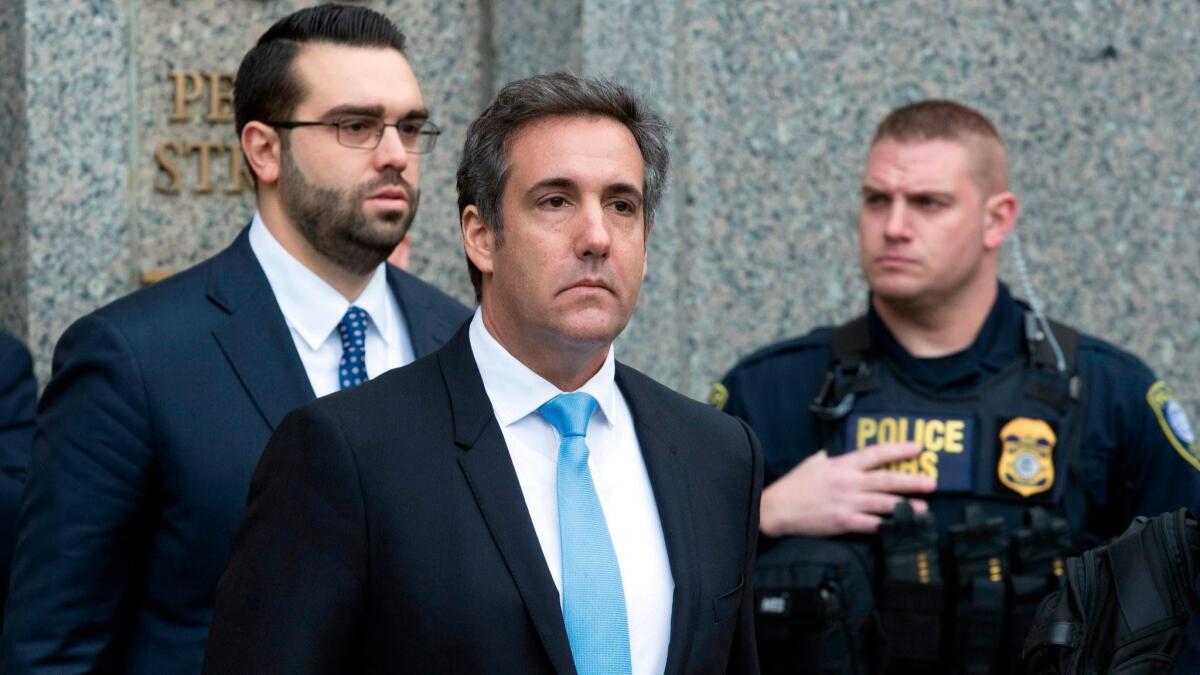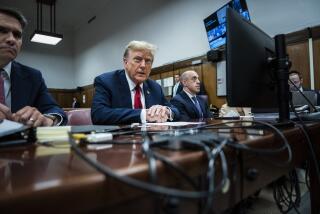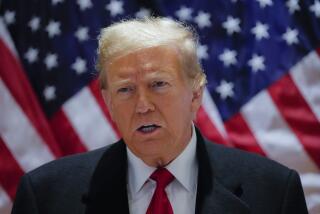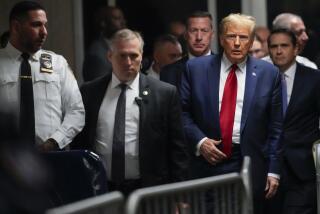Michael Cohen says he will invoke his 5th Amendment right in Stormy Daniels case

Michael Cohen, the longtime attorney of President Trump, told a federal judge on Wednesday that he will invoke his 5th Amendment right not to incriminate himself in a lawsuit brought by adult entertainer Stormy Daniels.
Cohen’s declaration, in support of his request to pause proceedings in the civil case, cited an “ongoing criminal investigation by the FBI and U.S. Attorney for the Southern District of New York.”
Earlier this month, the FBI raided Cohen’s home, office and a hotel room where he had been staying. That investigation includes looking into the effort to quash embarrassing stories about Trump during the 2016 campaign, according to a person familiar with the matter.
Daniels, who alleges she had an affair with Trump years ago, is seeking to void a confidentiality agreement she signed just days before the 2016 presidential election in exchange for $130,000. Cohen has said he facilitated the payment using his own money from a home-equity line of credit.
The suit, filed last month, named the president and Essential Consultants, a company Cohen created as a vehicle for the payment, as defendants. Daniels later added Cohen as a defendant.
In the filing Wednesday, Cohen said the FBI had seized “various electronic devices and documents” that contained information relating to the payment to Daniels, as well as related communications with Cohen’s lawyer, Brent Blakely.
“This is a stunning development,” Michael Avenatti, a lawyer for Daniels, said in a tweet. “Never before in our nation’s history has the attorney for the sitting President invoked the 5th Amend in connection with issues surrounding the President. It is esp. stunning seeing as MC served as the ‘fixer’ for Mr. Trump for over 10 yrs.”
It is not uncommon for defendants facing both civil liability and criminal prosecution to request a pause in civil proceedings to avoid giving sworn testimony and producing documents that could prove incriminating.
Even so, in 2016, Trump sneered at Hillary Clinton aides for exercising their right not to self-incriminate during a congressional investigation into her private email server.
“The mob takes the 5th,” Trump said at one campaign rally. “If you’re innocent, why are you taking the 5th Amendment?”
Yet in 1990, Trump himself took the 5th to avoid answering 97 questions in a divorce deposition.
Cohen’s attorneys argued last week for a pause in the Daniels case, in the U.S. District Court of the Central District of California. Judge James Otero ordered them to file a declaration from Cohen himself, stating whether he intended to assert his constitutional right against self-incrimination.
Otero must decide whether there is evidence of enough overlap between the civil case and the criminal investigation to justify a pause.
In New York, meanwhile, lawyers for Cohen and Trump continue to fight for the ability to review material seized in the raids before prosecutors have access to it.
They have argued that Cohen should have the ability to decide whether some of the material relates to communications between Cohen and his legal clients and therefore should be shielded from prosecutors’ review.
In letters to the court filed Wednesday, lawyers for Cohen, Trump and the Trump Organization said they were prepared to put significant resources into quickly reviewing the documents. A lawyer for Trump wrote that the president himself would be available “as needed” to assist in the process.
U.S. District Judge Kimba Wood has ordered that prosecutors let Cohen’s lawyers review some of the seized material. She has scheduled a hearing for Thursday to provide an update on the issue.
More to Read
Start your day right
Sign up for Essential California for news, features and recommendations from the L.A. Times and beyond in your inbox six days a week.
You may occasionally receive promotional content from the Los Angeles Times.






